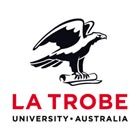- Duyurular ve Makaleler
- Find usIDP AustraliaIDP BahrainIDP BangladeshIDP CambodiaIDP CanadaIDP ChinaIDP EgyptIDP GhanaIDP Hong KongIDP IndiaIDP IndonesiaIDP IranIDP JordanIDP KenyaIDP KoreaIDP KuwaitIDP LebanonIDP MalaysiaIDP MauritiusIDP Middle EastIDP NepalIDP New ZealandIDP NigeriaIDP OmanIDP PakistanIDP PhilippinesIDP Saudi ArabiaIDP SingaporeIDP Sri LankaIDP Taiwan, ChinaIDP ThailandIDP TurkeyIDP UAEIDP VietnamIDP Corporate
- Social
- Türkçe
- Where we operate
- Courses
- Scholarships
- IELTS
- About IDP
- Öğrenci Servisleri
- Duyurular ve Makaleler
- Find us
- Find us
- En yakın IDP ofislerini bulun
- IDP Australia
- IDP Bahrain
- IDP Bangladesh
- IDP Cambodia
- IDP Canada
- IDP China
- IDP Egypt
- IDP Ghana
- IDP Hong Kong
- IDP India
- IDP Indonesia
- IDP Iran
- IDP Jordan
- IDP Kenya
- IDP Korea
- IDP Kuwait
- IDP Lebanon
- IDP Malaysia
- IDP Mauritius
- IDP Middle East
- IDP Nepal
- IDP New Zealand
- IDP Nigeria
- IDP Oman
- IDP Pakistan
- IDP Philippines
- IDP Saudi Arabia
- IDP Singapore
- IDP Sri Lanka
- IDP Taiwan, China
- IDP Thailand
- IDP Turkey
- IDP UAE
- IDP Vietnam
- IDP Corporate
- Social
- Dil Değiştirici
- IDP Education /
- Kolejler ve Üniversiteler /
- Australia /
- La Trobe University /
- Bachelor of Politics, Philo...


Location
Australia
Yeterlilik
Bachelor Degree
Ücretler
AUD33800
(2025)
Süre
3 Year(s)
Gelecek alımlar
07 March 2025
Giriş Puanı
6.0
IELTSCOURSE_INFO
Improve your ability to reason, both critically and empathetically
Develop your knowledge of political institutions and their histories, so as to understand the opportunities and constraints that frame the formulation of policy.
Advance your understanding of how the economy works, in a world of interdependent and global markets.
Advance both your literacy and your numeracy, so that you can undertake nuanced analyses that require both qualitative and quantitative skills.
Grasp how the disciplines of politics, philosophy and economics each throw a different yet interconnected light on the many practical problems that we face in our societies and in our everyday lives.
Balance broad coverage of all three PPE disciplines with a specialisation in politics, philosophy, economics, political economy or political philosophy.
Understand the variety of approaches that comprise the history of economic thought, and consider the relevance of these competing approaches for understanding today's economies.
Engage professionally and communicate effectively with individuals, organisations, and communities in a manner that is respectful of their needs, values, and capabilities.
As a social science, economics is an exciting and challenging discipline that explores real-world issues and analyses ways to improve the well-being of people and the societies we live in. This major will give you valuable insights into the application of economic principles to develop government policy, business solutions and understand the choices people make. Analyse important issues such as poverty, inequality, inflation, unemployment, environmental issues, innovation, digital transformation, international competition, trade and economic development, many of which relate to the United Nations Sustainable Development Goals. The key graduate attributes that a major in economics develop are critical thinking, problem solving, researching and evaluating information. Overall you gain the skills for careers in economic and social policy, business, banking, financial markets and consulting.
- Burslar Tüm bursları görüntüleyin
- Stajyerlik
Bölüm ücretleri gösterge niteliğindedir ve rehber olarak kullanılmalıdır. doğru fiyat bilgisi almak için.
Duration: 3 Year(s)
Fees: AUD33800
| Alım | Location |
|---|---|
| Semester 2 (July), 2026 | LA TROBE UNIVERSITY |
| Semester 1 (March), 2026 | LA TROBE UNIVERSITY |
| Semester 2 (July), 2025 | LA TROBE UNIVERSITY |
| Semester 1 (March), 2025 | LA TROBE UNIVERSITY |
Kabul şartları La Trobe University
Australian Tertiary Admission Rank: 65.35
International Baccalaureate: 24
6.5 IELTS (Academic) with no individual band less than 6.0.
TOEFL Internet based (iBT): Overall score of 79 with 13 in Reading, 12 in Listening, 18 in Speaking and 21 in Writing
Cambridge Certificate of Advanced English (CAE)- 176 with no less than 169 in any component
Son Başvuru Tarihi
Son başvuru tarihi mevcut değil Bir IDP danışmanıyla görüşün daha detaylı bilgi için
Further information
If you aren't eligible for the above entry requirements, you might ant to explore pathway options at La Trobe University. If you want to find out more, speak to our counsellors.
THE Dünya Sıralaması
251st / 1250
THE Dünya SıralamasıÖğrencilerimiz ne düşünüyor?
Bu kurum için hünüz bir yorum yapılmadı.
Sizin için öneriliyor
- Lisans
- Australia
- Finansman türü: Fee waiver/discount
- Lisans
- Australia
- Finansman türü: Fee waiver/discount
- Lisans
- Australia
- Finansman türü: Fee waiver/discount
- Lisans
- Australia
- DEADLINE: 11 Feb 2025
- Finansman türü: Fee waiver/discount
- Lisans
- Australia
- Finansman türü: Fee waiver/discount
- Lisans
- Australia
- Finansman türü: Fee waiver/discount
- Lisans
- Australia
- Finansman türü: Fee waiver/discount
- Lisans
- Australia
- Finansman türü: Fee waiver/discount
Your action plan
Adım 1
Shortlist your courses
Choose the best three courses you’re most likely to pursue.
Adım 2
Check your eligibility
Get an instant in-principle offer for courses with the IDP FastLane tag.
Adım 3
Apply through IDP Live
Fill out the form once and use it to apply to multiple courses.
IDP FastLane nasıl kullanılır?
FastLane ile alacağınız 'Ön Teklif' sayesinde istediğiniz okula kabul edilip edilmeyeceğinizi dakikalar içinde öğreneceksiniz!
Bir kurum ve bölüm seçin
Akademik profilinizi oluşturun
Ön Teklif' için başvurunuzu gönderin
Seçtiğiniz kurum(lar) size dakikalar içinde bir yanıt gönderecek!
Uzman bir danışmanla başvurmaya hazır olun




